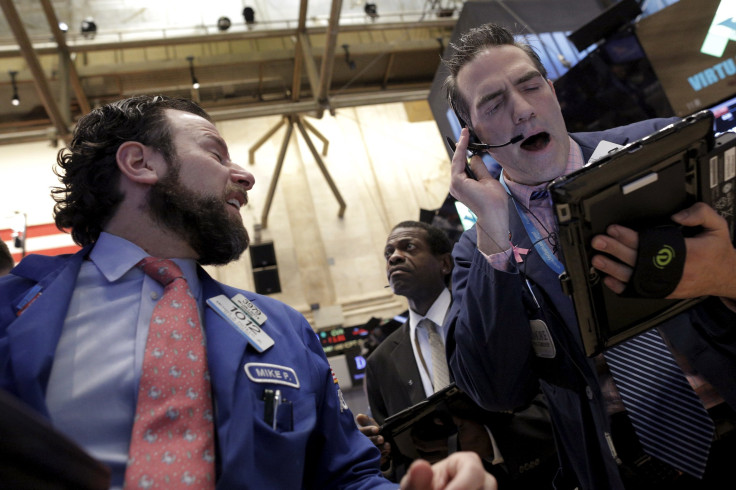Japan, Australia Stocks Rise As US Shares Pare 3.7% Slump

UPDATE: 8:57 p.m. EST -- More Asian stock markets gained Thursday, with Singapore reversing a loss to join Japan and Australia shares in climbing after U.S. stocks halved their losses.
Japan's Nikkei 225 increased its gains to 1.2 percent while Australia's ASX 200 climbed 0.9 percent and South Korea's KOSPI Index rose 0.4 percent. Singapore's STI rose 0.7 percent after slumping as much as 3 percent earlier in the day. The Shanghai Composite was down 1.1 percent and Malaysia's KLCI declined 0.6 percent.
Original story:
Japan and Australian stocks rose Thursday morning after U.S. shares pared a 3.7 percent slump. Still, other Asian markets were weighed down as U.S. stocks closed at one-year lows, dragged by oil prices falling to 2003 levels.
Japan's Nikkei 225 rose 0.5 percent while Australia's ASX 200 climbed more than 1 percent. Singapore's STI slumped 3 percent on top of a 1.5 percent drop on Wednesday. Shares in Shenzhen were off by 1 percent.
In the U.S. on Wednesday, the Standard & Poor's 500 index fell as much as 3.7 percent to 1,812.29 before closing down 1.2 percent at 1,859.33, its lowest since Oct. 2014. The index is down 9 percent since the start of the year. The Dow Jones Industrial Average fell 1.6 percent and the Nasdaq composite 0.1 percent.
“Investors may take comfort that major global indices have hit significant support levels,” said Michael McCarthy, chief market strategist at CMC Markets in Sydney, according to Bloomberg. “The most important question for markets is whether last night’s huge trading ranges and sharp turnaround represent capitulation or the beginning of a much deeper problem. The next 24 hours are crucial to the near-term and medium-term outlook for markets.”
U.S. crude oil for February delivery fell 6.7 percent, breaking through the $27 a barrel mark for the first time since 2003 to close at $26.55 per barrel, according to Reuters. The drop came with a report that U.S. oil stocks rose more than expected last week and a Middle Eastern shipping company started to do business with Iran, which marks its first known transaction since economic sanctions were lifted over the weekend. This prompted the country to say it would boost oil production by 500,000 barrels of oil a day. Venezuela sought an emergency OPEC meeting to prop up prices but other members ignored the call.
"The fear is, 'Is tomorrow going to bring more selling?' People are not even thinking about today, they're thinking about tomorrow," said Kim Forrest, a senior equity research analyst at Fort Pitt Capital Group in Pittsburgh, according to Reuters.
The refusal of Saudi Arabia and other OPEC members to reduce production has been one of the handful of factors behind oil's drop from more than $100 a barrel in mid-2014. U.S. production has also climbed due to fracking, a controversial means of extracting oil. And China's economy, the world's second biggest and the long-time driver of global growth, has slowed.
This has forced oil producing companies and countries to cut spending — including Saudi Arabia — hurting the many businesses that supply the industry. It's also raised fears of a spate of bankruptcies that could in turn hit lenders to the industry.
© Copyright IBTimes 2024. All rights reserved.





















